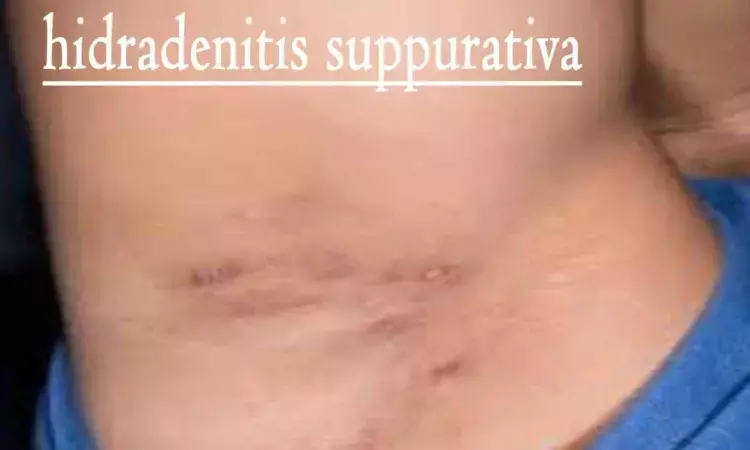- Home
- Medical news & Guidelines
- Anesthesiology
- Cardiology and CTVS
- Critical Care
- Dentistry
- Dermatology
- Diabetes and Endocrinology
- ENT
- Gastroenterology
- Medicine
- Nephrology
- Neurology
- Obstretics-Gynaecology
- Oncology
- Ophthalmology
- Orthopaedics
- Pediatrics-Neonatology
- Psychiatry
- Pulmonology
- Radiology
- Surgery
- Urology
- Laboratory Medicine
- Diet
- Nursing
- Paramedical
- Physiotherapy
- Health news
- Fact Check
- Bone Health Fact Check
- Brain Health Fact Check
- Cancer Related Fact Check
- Child Care Fact Check
- Dental and oral health fact check
- Diabetes and metabolic health fact check
- Diet and Nutrition Fact Check
- Eye and ENT Care Fact Check
- Fitness fact check
- Gut health fact check
- Heart health fact check
- Kidney health fact check
- Medical education fact check
- Men's health fact check
- Respiratory fact check
- Skin and hair care fact check
- Vaccine and Immunization fact check
- Women's health fact check
- AYUSH
- State News
- Andaman and Nicobar Islands
- Andhra Pradesh
- Arunachal Pradesh
- Assam
- Bihar
- Chandigarh
- Chattisgarh
- Dadra and Nagar Haveli
- Daman and Diu
- Delhi
- Goa
- Gujarat
- Haryana
- Himachal Pradesh
- Jammu & Kashmir
- Jharkhand
- Karnataka
- Kerala
- Ladakh
- Lakshadweep
- Madhya Pradesh
- Maharashtra
- Manipur
- Meghalaya
- Mizoram
- Nagaland
- Odisha
- Puducherry
- Punjab
- Rajasthan
- Sikkim
- Tamil Nadu
- Telangana
- Tripura
- Uttar Pradesh
- Uttrakhand
- West Bengal
- Medical Education
- Industry
Elevated C-Reactive Protein in Hidradenitis Suppurativa tied to Severe Disease and Reduced Adalimumab Efficacy: JAMA

USA: A recent post hoc analysis of two randomized clinical trials has provided insight into the role of C-reactive protein (CRP) as a potential biomarker for predicting the response to adalimumab in patients with hidradenitis suppurativa (HS), a chronic and painful inflammatory skin condition.
New findings published in JAMA Dermatology suggest that patients with hidradenitis suppurativa and elevated serum C-reactive protein tend to have a higher body mass index (BMI) and more severe disease. Additionally, adalimumab's efficacy may be reduced in individuals with a higher inflammatory burden.
HS is characterized by recurrent, inflamed lumps, abscesses, and tunnels beneath the skin, typically in the armpits, groin, and buttocks. Despite the availability of biologic treatments such as adalimumab and secukinumab, the rates of biologic failure remain notably high, emphasizing the need for more tailored treatment strategies.
Against the above background, Simon J. Gunter, Department of Medicine, Pennsylvania Hospital, Philadelphia, and colleagues sought to determine whether CRP, a nonspecific marker of systemic inflammation, could help predict which patients would respond to adalimumab therapy.
In the combined patient cohorts from both studies (N = 588), the average age was 36.4 years. Hurley stage II was more prevalent than stage III, with 53.9% of patients in stage II and 46.1% in stage III. The average body mass index (BMI) was 32.9 kg/m², and a higher proportion of female patients were included compared to male patients (65.5% versus 34.5%). Additionally, 23.6% of participants reported a family history of hidradenitis suppurativa. At baseline, the median International Hidradenitis Suppurativa Severity Score System (IHS4) score was 22. Patients had a median of 10 abscesses/inflammatory nodules, with one abscess, seven inflammatory nodules, and two draining fistulas.
The following were the key findings:
- More patients in the post hoc analysis had elevated baseline C-reactive protein (464 vs 124 patients), defined as >0.23 mg/dL in the PIONEER studies.
- The median elevated C-reactive protein level was 1.23 mg/dL, and normal levels were 0.16.
- Elevated C-reactive protein was associated with higher baseline BMI (34.1 versus 28.6 kg/m²), more severe Hurley stage III disease (51.5% versus 25.8%), and higher IHS4 score (25 versus 12).
- Patients with elevated C-reactive protein also had more abscesses, inflammatory nodules, and draining fistulas (22 versus 15).
- Patients were randomized to receive either 40 mg weekly adalimumab or placebo for 12 weeks.
- Elevated baseline C-reactive protein was linked to a 47% higher risk of reduced clinical response (OR 0.53).
- Adalimumab increased the chance of clinical response in both groups with elevated (OR 3.18) and normal C-reactive protein (OR 2.25).
- For patients with elevated C-reactive protein, each unit increase was associated with a lower chance of treatment response (OR 0.99).
- The odds of clinical response for adalimumab recipients with a C-reactive protein level of 2.81 mg/dL vs 0.30 mg/dL were 0.70.
Based on their findings, the authors suggest that patients with higher levels of inflammation may experience less benefit from adalimumab than those with lower inflammation. They recommend further prospective research to establish a clearer cutoff for identifying patients less likely to respond to the treatment.
Reference:
Gunter SJ, Porter ML, Kimball AB. C-Reactive Protein and Response to Adalimumab in Patients With Hidradenitis Suppurativa: A Post Hoc Analysis of 2 Randomized Clinical Trials. JAMA Dermatol. Published online January 08, 2025. doi:10.1001/jamadermatol.2024.5146
Dr Kamal Kant Kohli-MBBS, DTCD- a chest specialist with more than 30 years of practice and a flair for writing clinical articles, Dr Kamal Kant Kohli joined Medical Dialogues as a Chief Editor of Medical News. Besides writing articles, as an editor, he proofreads and verifies all the medical content published on Medical Dialogues including those coming from journals, studies,medical conferences,guidelines etc. Email: drkohli@medicaldialogues.in. Contact no. 011-43720751


